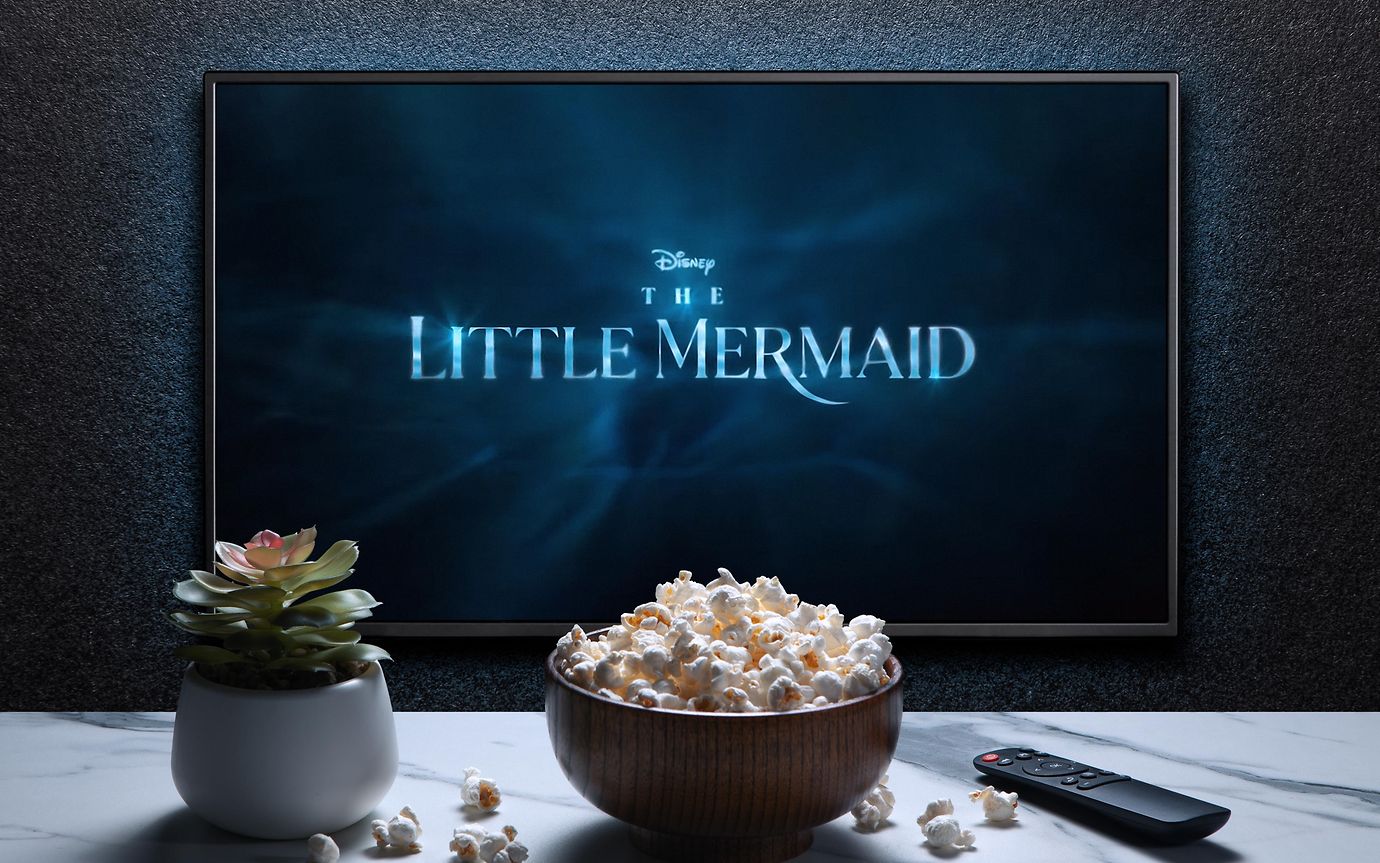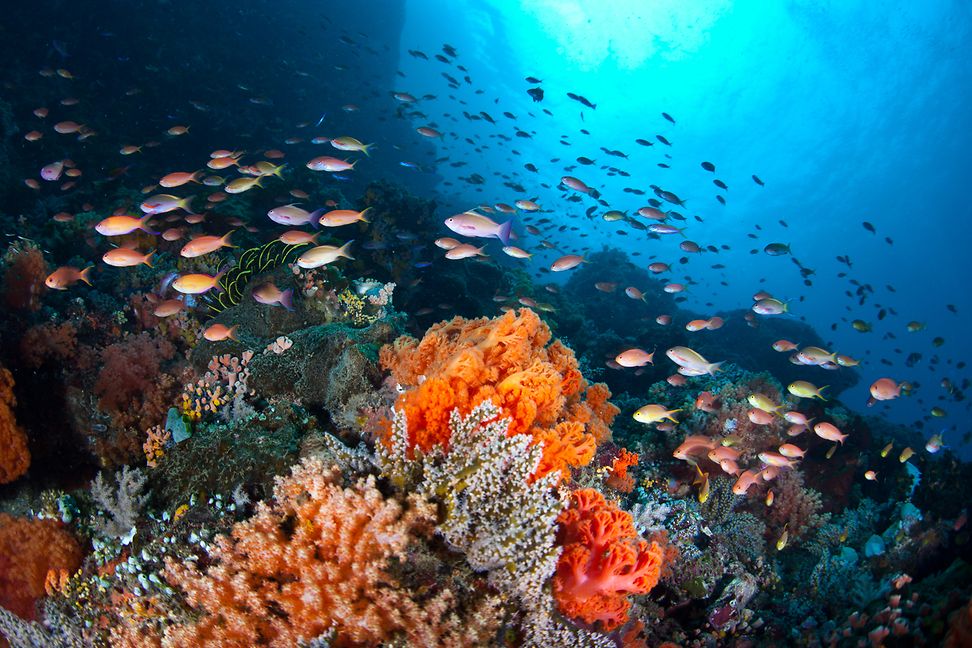As the UK’s National Marine Week wraps up, Abika Martin takes a trip down memory lane with some of Disney’s underwater characters to see how they are faring in the twenty-first century.

Saturday 22nd July marked the beginning of the UK’s National Marine Week – a misnomer, given it actually lasts around 16 days each year, concluding on 6th August, timed to coincide with tides around the country. With the live action remake of Disney’s classic, The Little Mermaid, set to be one of the biggest box office hits of the year, I decided to look at some of the environmental threats facing my favourite marine characters from the movie.
Growing up, The Little Mermaid was my favourite Disney film, and I still know every song verbatim. In the closing chorus of Sebastian’s infamous number, ‘Under the Sea’ he boasts that it’s “hotter under the water”.
The trouble is, he’s right.
90% of global warming is occurring in the ocean, which is having a catastrophic impact.
Over the past 30 years, there has been a 95% decline in the oldest and thickest ice in the Arctic. Sea levels are rising at an accelerated rate, with about three inches gained in the past 25 years, and a further 12 inches anticipated by 2050. The loss of permafrost is also releasing trapped methane, thus contributing to the greenhouse effect and compounding all of these issues.
Most marine life exists in the surface layer, which takes most of this heat and disruption. As a result of this, and other human impacts, many species are threatened… including the real-life counterparts to Ariel’s cartoon companions.
In bad news for the marine maestro, Dungeness crabs are reportedly losing their sense of smell as the oceans become more acidic. Thinning populations have been linked to the phenomenon, which occurs as more carbon dioxide is absorbed into the water. Crabs have poor eyesight and instead rely on their sense of smell to find food, mates and suitable habitats, as well as to avoid predators. It is believed that the phenomenon causes crabs to reduce their physical acts of ‘sniffing’ (flicking antennae) and also to have a lower response rate to odours in water with higher levels of carbon dioxide.
Clearly there is no such thing as a sea witch, but the tentacled tyrant’s octopus cousins are under threat due to rising ocean temperatures. The eggs of the Common Octopus are reliant almost entirely on the ambient water temperature to control their development, and the eggs are laid in shallow waters where the ocean is warmest. Hotter waters due to climate change can therefore lead to premature hatching, with water just 3ᵒc higher leading to a 30% increase in mortality rate.
For context, it is estimated that our oceans will be 1-4ᵒc degrees hotter by 2100.

Those warming waters are shifting currents and changing the distribution of fish communities, dramatically altering the structure of ecosystems. Fish are migrating North at scale, in search of cooler conditions as their historic territories overheat. The Atlantic Croaker, Banded Drum, and Smooth Butterfly Ray have moved northward by an average of 165 miles since the late 1980s.
Alarmingly, studies show there will be more plastic than fish in our oceans by 2050; this plastic problem is impacting our seabirds, with over a million killed by plastic ingestion every year. Heartbreakingly, in addition to consuming plastic themselves, adult birds mistake plastic for food and bring it back to their nests to feed to their young, with chicks unlikely to survive to adulthood having eaten it. Seabirds that do survive are smaller, with shorter wings and bills, endure health problems such as negatively impacted kidney function, and their stomach volumes are reduced by the presence of plastic which leads to starvation. In the 1960s, fewer than 5% of birds were found with plastic in their stomachs but, twenty years later, this had grown to in excess of 80%, and projections show that 99% of seabird species will be ingesting plastic by 2050.
This terrible twosome are perhaps unlikely characters to engender sympathy and, technically, electric eels are not eels at all, but knifefish. However, for the purposes of this article I am making a tenuous link to the European Eel - a critically endangered species. Eels once comprised more than 50% of the fish biomass in most freshwater environments across Europe, but its distribution has declined to around 1–10 % of earlier levels. This has been caused by human activity including fishing, damming, and pollution. There is a knock-on impact of this population decimation, as eels are a critical food source for birds, mammals and fish further up the food chain, and a key predator of those below, thus maintaining biodiversity within the ecosystems of rivers and streams. In addition, they play a role in keeping these habitats clean, as they transport mussels around freshwaters, and mussels are filter-feeders who removed pollutants from the water.

Granted, we are not marine life, but it would be remiss of me not to note here that the significant changes reverberating under the sea also impact us. Rising sea levels endanger coastal communities and small island nations, with an area of 649,000km projected to be underwater by the end of this century, putting up to 410 million people at risk. Meanwhile, the movement of fish species can affect both commercial and recreational fisheries, and therefore the economy of the communities reliant on them. Approximately 200 million people worldwide depend on fishing for their livelihood. The economic impact is felt closer to home, too, as disruption to our global food systems drives prices higher.
Water itself, of course, is a finite resource, which we can easily forget given it covers some 70% of the planet. Freshwater, which we rely on for hydration and hygiene, comprises just 3% of this, and we can only access a third of that. As the world gets warmer, these freshwater supplies are contaminated and compromised by the direct impacts, such as rising sea levels making water salty, and the indirect effects of related disaster events such as drought and flooding.
While water scarcity will impact ecosystems, it also means two-thirds of the world’s population may face water shortages as soon as 2025.
The Little Mermaid, of course, is not a Disney invention, but an adaptation of one of Hans Christian Andersen’s creations, with the original having a rather darker plotline than the movie. In the Andersen version, each step Ariel takes in human form feels like walking on knives. She doesn’t get her man, but instead dissolves heartbroken into sea foam, having refused the chance to secure survival by killing the Prince that rejected her.
In a lesser-known twist, though, she becomes a spirit because of this, and is given the opportunity to attain her true desire – an eternal soul – through acts of kindness to humans over 300 years, with the story therefore ending on a hopeful note.
If we split out the fantasy and hyperbole of the fairy tale construct, the underlying narrative is therefore one of change and redemption. Ariel makes personal sacrifices in pursuit of both what she wants and what is right within the story. She is shown a path to earn the future she wants through unselfishness.
Is this not where we find ourselves now? Whether your motivation is food security, or preservation of the flora and fauna of the oceans, we know the sacrifices that need to be made, and have been shown a path to change our future.
If we all play our part, our marine life may yet have a happy ever after.
This communication is provided for information purposes only. The information presented herein provides a general update on market conditions and is not intended and should not be construed as an offer, invitation, solicitation or recommendation to buy or sell any specific investment or participate in any investment (or other) strategy. The subject of the communication is not a regulated investment. Past performance is not an indication of future performance and the value of investments and the income derived from them may fluctuate and you may not receive back the amount you originally invest. Although this document has been prepared on the basis of information we believe to be reliable, LGT Wealth Management UK LLP gives no representation or warranty in relation to the accuracy or completeness of the information presented herein. The information presented herein does not provide sufficient information on which to make an informed investment decision. No liability is accepted whatsoever by LGT Wealth Management UK LLP, employees and associated companies for any direct or consequential loss arising from this document.
LGT Wealth Management UK LLP is authorised and regulated by the Financial Conduct Authority in the United Kingdom.